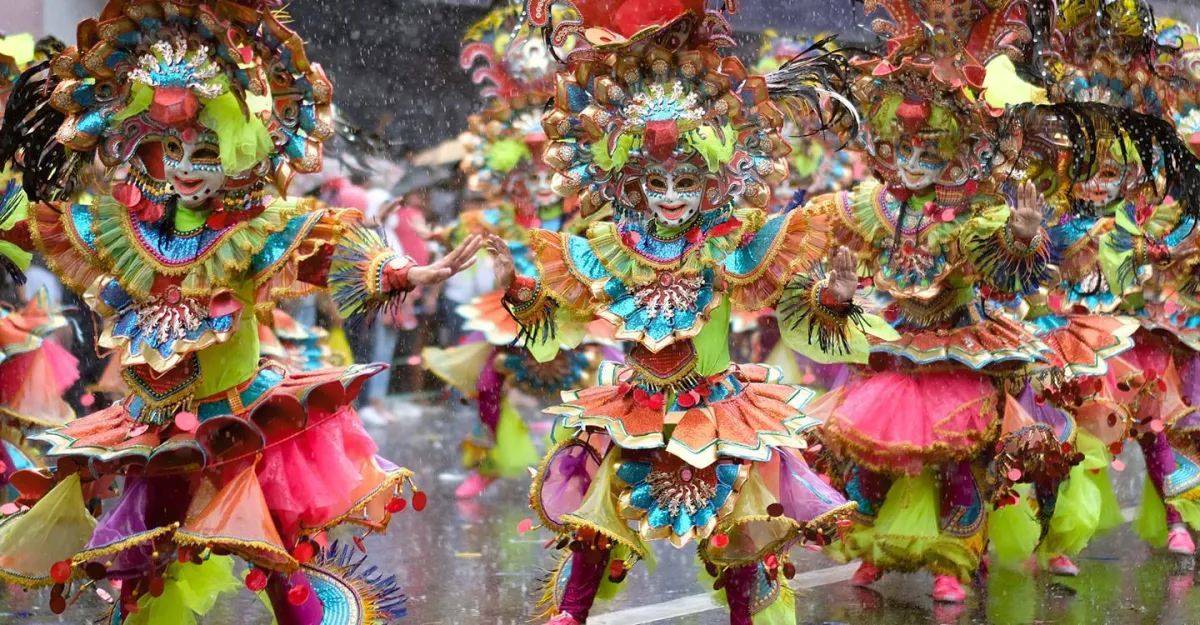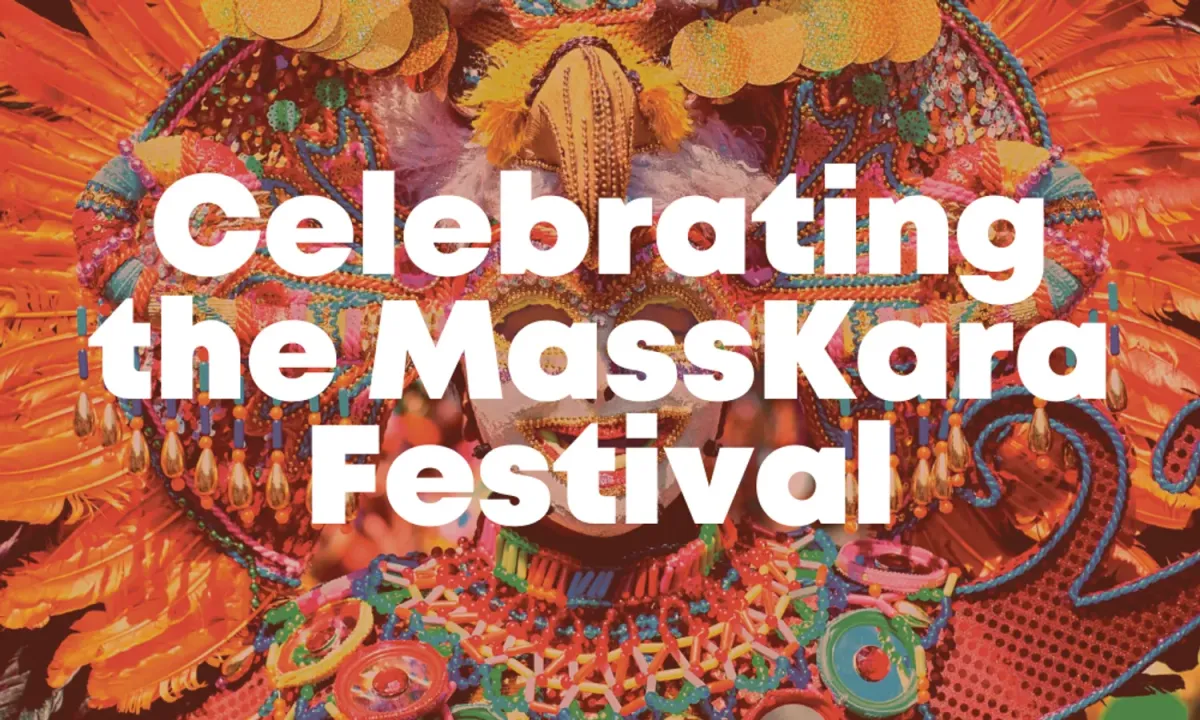⭕ SMART: 098 5973 7798 ⭕ GLOBE: 091 5874 9128 ⭕LANDLINE: 034 466 4554
Masskara Festival Review
Bacolod City, nestled in the heart of Negros Occidental, Philippines, is affectionately known as the "City of Smiles." It's a nickname that carries a deep sense of identity and pride for its residents. However, the story behind this moniker isn't just about cheerful faces; it's about the resilience, creativity, and indomitable spirit of a community that found a unique way to overcome adversity.
Bacolod's history is rooted in sugarcane cultivation, which dates back to Spanish colonial times. The region's fertile soil and tropical climate made it ideal for sugarcane plantations, and over time, the province of Negros Occidental became synonymous with sugar production. The success of the sugar industry led to the rise of affluent sugar barons and the construction of magnificent ancestral homes known as "Balay na Bato," which still stand today as a testament to the province's opulent past.
The Challenges of the 1980s
The 1980s brought significant challenges to Bacolod. The sugar industry, which had long been the lifeblood of the region's economy, faced a crisis due to plummeting sugar prices on the global market. To make matters worse, the city was hit by a tragedy when the MV Don Juan, a passenger ship, collided with the tanker MT Tacloban City, resulting in a devastating sea disaster that claimed many lives.
Amidst economic difficulties and mourning for the loss of loved ones, Bacolodnons found themselves at a crossroads. The city was in dire need of a morale boost, a symbol of hope that could help its people rise above their trials and unite in the face of adversity.
The Birth of Masskara Festival
It was against this backdrop of hardship and sorrow that the idea of the Masskara Festival was born. A group of local artists, community leaders, and government officials came together to create an event that would celebrate Bacolod's spirit, showcase its artistic talents, and bring smiles back to the faces of its people.
The Masskara Festival took its name from two words: "mass," meaning multitude, and "kara," derived from the Spanish word "cara" for face. Together, "Masskara" symbolized the festival's central theme—a multitude of smiling faces.
The Masked Faces of Masskara
Masks became the iconic symbol of the Masskara Festival. These masks, often adorned with vibrant colors, intricate designs, and cheerful expressions, served as a powerful metaphor for the resilience of Bacolodnons. Behind each mask was a person who had faced adversity with courage and grace, and who, despite their trials, continued to smile.
The creation of Masskara masks became an art form in itself. Local artists and craftsmen poured their creativity into designing and crafting these masks, each one a unique masterpiece that reflected the essence of the festival. The masks were not just decorative; they became a means of expression, a representation of Bacolod's determination to find joy even in the face of difficulty.
The Festival's Inaugural Year
The year was 1980, and Bacolod City was ready to unveil its inaugural Masskara Festival. The streets came alive with colorful parades, street dancing, and vibrant music. The first Masskara Queen was crowned, and the aroma of delicious local cuisine filled the air as food vendors lined the festival grounds.
As the Masskara Festival unfolded, it became clear that it was more than just a cultural celebration; it was a declaration of resilience and unity. The people of Bacolod, clad in their vibrant masks, danced and sang their way through the city's streets, showing the world that they could still find reasons to smile, even in the face of adversity.
Masskara's Impact on Bacolod
The Masskara Festival's success was immediate and profound. It injected new life into Bacolod's cultural scene, drawing tourists and visitors from across the Philippines and beyond. The festival not only revitalized the local economy but also instilled a renewed sense of pride in Bacolodnons.
Over the years, Masskara's popularity grew, and it became an annual tradition. It evolved to include various competitions, such as the Masskara Queen pageant and the Street and Arena Dance competitions, where dance troupes from different barangays (neighborhoods) competed in choreographed routines. These competitions added an element of friendly rivalry and artistic expression to the festival.
Masskara Cultural Significance
Beyond its economic and tourism impact, the Masskara Festival held profound cultural significance for Bacolod. It celebrated the city's identity as a place of warmth, resilience, and creativity. Masskara became a source of inspiration for artists, musicians, and writers, who found in the festival's spirit a wellspring of creativity.
The festival also became a platform for showcasing Bacolod's rich cultural heritage. Traditional dances, music, and local cuisine took center stage, allowing Bacolodnons to reconnect with their roots while sharing their culture with the world.
The Legacy of Masskara
As we reflect on the legacy of the Masskara Festival, we find a story of a city and its people who turned adversity into art, sadness into celebration, and hardship into a reason to smile. The Masskara Festival is not just an event; it is a symbol of Bacolod's enduring spirit and its ability to find joy in even the darkest of times.
The Masskara Festival in Bacolod is not just about smiles, but about cheeks that ache from laughter too! Picture this: as the Masskara street dancing competition begins, you see a group of tourists enthusiastically attempting to copy the dancers' intricate moves. They're not quite nailing it, but they're having a blast, creating a hilarious dance fusion that the locals cheer on with endless laughter.
Amidst the colorful chaos of the festival, you spot a talented street performer who takes "multi-tasking" to a whole new level. They manage to play a lively tune on a tambourine, juggle oranges, and keep an infectious smile on their face—all at the same time! It's the ultimate Masskara multitasking marvel!
As the day progresses, you come across a food fair serving quirky Masskara-themed treats. There's a "Mask-aroon" stall offering macaroons with smiling mask designs, and a "Grin and Grill" stand where the chefs are masterfully turning grilled chicken into little smiling works of culinary art. You can't help but laugh and eat your way through this delightful gastronomic adventure!
And just when you thought the hilarity couldn't get any better, you spot a group of kids attempting to build the tallest Masskara tower made of inflatable smiley face balloons. With each balloon they add, the tower wobbles and threatens to topple over, sending the kids into fits of giggles. It becomes a laughing contest, with every near-collapse accompanied by a collective "uh-oh" and then erupting into uncontrollable laughter.
To add to the amusement, a local comedian takes the stage during the festival's talent show. They expertly blend Masskara-themed jokes with puns and comedic antics, leaving the audience in stitches. Their quick wit and infectious laughter fill the air, making it hard to tell who's laughing more – the comedian or the crowd!
Throughout the Masskara Festival, one thing becomes abundantly clear: Bacolod knows how to celebrate with humor and heart. From quirky performances to creative culinary delights, this festival is a non-stop giggle-fest that leaves everyone with not just smiles but memories filled with laughter that lasts long after the festivities are over. In Bacolod's City of Smiles, joy and laughter go hand in hand, creating a magical atmosphere where the spirit of the festival lives on in every chuckle and belly laugh. So, get ready to laugh until your cheeks hurt, because in Bacolod, the MassKara Festival is a riotous celebration where happiness knows no bounds!

Most Important Reasons Why The Masskara Festival Is a Popular Event
Tourists attempting to copy the Masskara street dancers with hilarious dance moves – it's a "unique" dance fusion.
A street performer juggling oranges, playing a tambourine, and smiling all at once – the ultimate Masskara multitasking pro!
Quirky Masskara-themed treats like "Mask-aroon" macaroons and "Grin and Grill" chicken – food puns that make you chuckle and crave!
Kids building a towering Masskara balloon structure that wobbles and threatens to collapse – a laughing contest of near-mishaps!
A local comedian mixing Masskara-themed jokes with puns and comedic antics – leaving the crowd in stitches!
People wearing inflatable smiley face costumes, bumping into each other, and sharing laughter-filled collisions!
A "Smile Olympics" where contestants compete in the silliest, cheesiest, and most infectious smiles – grin and bear it!
Locals teaching visitors their unique Masskara dance moves – everyone is a dancing sensation (or maybe not)!
At the Masskara Festival, laughter is the currency, and comedic moments abound in the midst of the colorful festivities. It's a time to celebrate with humor and heart, where genuine smiles and hilarious antics create a joyous atmosphere that's truly one of a kind!

The Story Of The Masskara Festival and How It Came To Be
Once upon a time in the vibrant City of Smiles, Bacolod, there was a mischievous group of artists and performers who were determined to bring joy and laughter to their beloved city. They noticed that despite the challenges faced by the community, the people of Bacolod always managed to find reasons to smile and remain resilient. This inspired them to create an extraordinary festival that would celebrate the indomitable spirit of the Bacoleños.
The group of friends, led by a talented mask-maker named Miguel, hatched a plan to organize a grand festival that would showcase the creativity and artistry of the city. They decided to call it the "Masskara Festival," combining the words "mass" (many) and "kara" (face) to represent the multitude of smiling faces that would grace the event. As they brainstormed ideas for the festival, they knew they needed something truly unique to make it unforgettable. And so, Miguel came up with a brilliant concept – colorful masks with bright smiles to symbolize the resilience and happiness of the people of Bacolod, even in the face of challenges. With their hearts full of excitement and determination, the group set to work creating hundreds of smiling masks. Each mask was crafted with care and adorned with vibrant colors, reflecting the joyful spirit of Bacolod. They knew these masks would become the heart and soul of the Masskara Festival.
As the festival day approached, the city buzzed with anticipation. The streets were adorned with colorful decorations, and the air was filled with excitement and laughter. The group of friends couldn't wait to see their creation come to life. Finally, the day of the festival arrived, and the streets of Bacolod came alive with a kaleidoscope of colors and laughter. The Maskara street dancing competition was the main attraction, where groups of dancers, donning the smiling masks, paraded through the city with infectious energy and enthusiasm. Spectators lined the streets, cheering on the performers, and joining in the fun with their own masks and smiles. As the parade passed by, the laughter and joy spread like wildfire, enveloping the entire city in a contagious wave of happiness.
The Masskara Festival was an instant success, and it became an annual tradition in Bacolod. Each year, the city embraced the festivities with open arms, welcoming tourists from all corners of the world to experience the magic of the festival. As the years passed, the Masskara Festival continued to grow, attracting more visitors and becoming a symbol of Bacolod's indomitable spirit and sense of community. It brought people together, bridging gaps and fostering a sense of unity and joy among all who attended.
And so, the Masskara Festival became not just a celebration of masks and colors but a testament to the power of laughter, resilience, and the unbreakable spirit of the City of Smiles, Bacolod. And to this day, the festival continues to shine brightly, spreading happiness and bringing smiles to all who partake in its joyous celebration.

The Masskara Festival Provides a Wholesome Sense Of Community
The Masskara Festival is an annual event celebrated in Bacolod City, Philippines. Known as the "City of Smiles," Bacolod hosts this lively and colorful festival every October. The highlight of the festival is the Maskara street dancing competition, where participants wear elaborately designed masks adorned with smiling faces. The festival aims to showcase the city's creativity, resilience, and warm hospitality. With a variety of activities, including street parties, food fairs, art exhibits, and cultural performances, the Masskara Festival brings together locals and tourists in a joyous celebration filled with laughter, unity, and a true sense of community. The Masskara Festival, with its vibrant masks, colorful parades, and infectious energy, is not just a celebration—it's a testament to the sense of community that defines Bacolod City, the "City of Smiles." In the heart of Negros Occidental, Philippines, this festival has become a beacon of unity and resilience, showcasing how a community can come together in the face of adversity to create something beautiful and enduring.
The Unity of Masked Faces
Masks became the iconic symbol of Masskara, and they carried profound significance. Behind each mask was a person who had faced adversity, loss, and economic hardship. The masks, adorned with vibrant colors and joyful expressions, embodied the resilience of Bacolodnons.
The creation of Masskara masks became a communal endeavor. Local artists and craftsmen worked tirelessly to craft unique masks, each one a representation of the festival's theme—smiles amid adversity. The process of making these masks fostered a sense of togetherness and creative collaboration within the community.
The Art of Street Dancing
One of Masskara's most captivating features is its street dancing competitions. Neighborhoods and communities form dance troupes to compete in choreographed routines that celebrate the festival's spirit. These performances are a testament to the dedication, creativity, and unity of Bacolod's communities.
The months leading up to the festival are filled with intense rehearsals and preparations. Community members of all ages, from young children to elders, participate in the dance troupes, forging bonds and creating lasting memories. The street dancing competitions are not just about winning; they are about showcasing the community's spirit and celebrating its unique identity.
Barangay and School Contingents
The Masskara Festival extends its sense of community to the barangays (neighborhoods) and schools of Bacolod. Each year, these entities participate in the Street and Arena Dance competitions, adding a competitive yet collaborative element to the festivities. These contingents become microcosms of community spirit within the larger festival.
Barangays and schools invest time, effort, and resources into their Masskara entries, rallying support from residents and alumni. The competition fosters a healthy sense of camaraderie as communities come together to celebrate their heritage and showcase their creativity.
The Resilience of the Negrense Spirit
The Masskara Festival embodies the enduring spirit of the Negrenses. This spirit is not confined to the festival's duration; it is a year-round force that drives the community to overcome challenges and celebrate life's joys. Bacolodnons are known for their warm hospitality, their ability to find reasons to smile even in difficult times, and their unwavering support for one another. The festival's success, year after year, is a testament to the community's resilience. Bacolodnons face challenges head-on, drawing strength from their shared heritage and the knowledge that, together, they can overcome anything. Masskara serves as a reminder of the Negrense spirit, an embodiment of the belief that unity and resilience can turn adversity into art.
Economic Impact and Community Growth
Masskara isn't just a cultural celebration; it also has a significant economic impact on Bacolod. The festival draws tourists and visitors from across the Philippines and the world, benefiting local businesses, hotels, and the hospitality industry. The economic boost generated by Masskara helps improve the quality of life for residents and contributes to the development of the city's infrastructure. Community growth and development have been closely tied to the festival's success. As Bacolod's reputation as a cultural and tourism destination has grown, so too has its potential for economic prosperity. This growth has led to improved facilities, services, and opportunities for the community.
Masskara Cultural Significance
Beyond its economic and tourism impact, Masskara holds deep cultural significance for Bacolod. It serves as a platform for the community to showcase its rich cultural heritage, from traditional dances to local cuisine. Masskara encourages Bacolodnons to reconnect with their roots while sharing their culture with the world.
The festival's cultural exhibitions, art shows, and food festivals provide a space for local artists, craftsmen, and culinary talents to shine. This not only preserves and celebrates Bacolod's heritage but also supports the artistic community, further strengthening the sense of cultural identity within the city.
Masskara Legacy
The legacy of Masskara is one of community, resilience, and unity. It serves as a reminder that even in the face of adversity, a community can come together to create something beautiful and enduring. Masskara legacy lives on in the smiles of Bacolodnons, the vibrancy of the festival, and the sense of pride that the community takes in its cultural heritage.
The Power of Community and Celebration
The Masskara Festival is more than just a yearly celebration; it is a reflection of the remarkable sense of community that defines Bacolod. It showcases how a city and its people can come together to find joy, even in the most challenging times. Masskara serves as a reminder of the power of unity, resilience, and celebration—a reminder that smiles can light up even the darkest of days when a community stands together.

